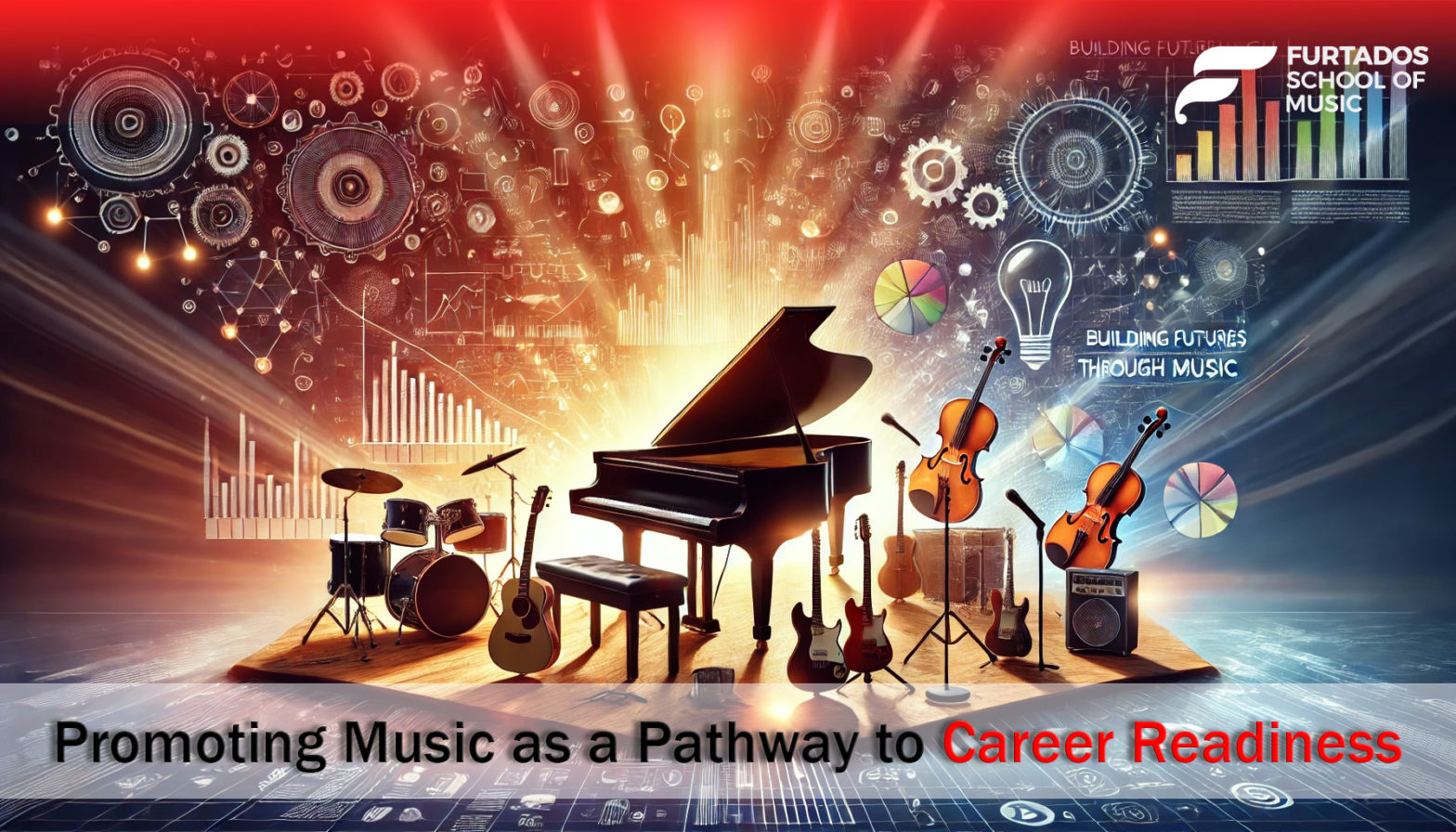One such avenue that often goes underestimated is music. Beyond being a hobby or passion, engaging with music can significantly contribute to career readiness in various ways. By promoting music and its benefits, individuals develop creativity, discipline, and leadership skills—all essential for thriving in today’s dynamic work environment.
In today’s competitive job market, where traditional career paths are constantly evolving, the role of extracurricular activities in shaping a well-rounded individual has become more significant than ever.
Promoting Music as a Pathway to Career Readiness!
Explore some music industry careers and discover how FSM is playing a big role in helping artists across India by promoting music and nurturing their talent.
Developing Transferable Skills Through Music
Music education helps develop skills that are valuable in the professional world. Whether you’re learning an instrument, singing in a choir, or composing music, you’re honing skills such as:
- Creativity: Music encourages creativity by allowing you to experiment with melodies and harmonies.
- Collaboration: Working with other musicians teaches teamwork and communication.
- Time Management: Balancing practice sessions with other responsibilities builds discipline.
- Emotional Intelligence: Music allows for expression of emotions, enhancing empathy and understanding.
Music as a Networking Tool
Participating in musical activities opens doors to networking opportunities. Whether through local performances or music clubs, connecting with fellow musicians and industry professionals can lead to mentorship, collaborations, career exploration and job opportunities.
Music and Cultural Awareness
Engaging with music exposes individuals to diverse cultures, genres, and histories. This cultural awareness is important in industries where understanding different perspectives leads to innovative solutions.
Music and Emotional Intelligence
Music is inherently emotional and can serve as a powerful medium for emotional expression and understanding. Engaging with music allows individuals to explore and articulate their emotions, fostering emotional intelligence. This skill is crucial in professional settings where empathy and understanding play key roles in leadership and teamwork.
Personal Growth and Well-being
Beyond career prospects, music contributes significantly to personal growth and well-being. It provides a creative outlet for stress relief, promotes mindfulness and relaxation, and enhances overall cognitive function. Individuals who engage with music regularly often experience improved mood, increased self-confidence, and a sense of accomplishment, which are beneficial in both personal and professional life.
4 key strategies to make a career in music
- Writing More Songs
Professional songwriters in music hubs like Nashville, New York, and Los Angeles adhere to a rigorous schedule of writing multiple songs each week. This disciplined approach, often involving 2-4 hour sessions per day, allows them to hone their craft and improve consistently. The mantra among these writers is to aim for their first 100 songs as quickly as possible, recognizing that early compositions may not be their best work. This dedication highlights the importance of consistency and practice in songwriting.
- Practice Performance
For aspiring touring musicians aiming to enhance their live performances, consistent practice is key. Successful bands and artists often play between 120 to 250 shows per year. This dedication is exemplified by musicians like Santana and Kenny G, who spend hours daily refining their skills. Dave Grohl emphasizes the importance of live performance, suggesting that great performances, regardless of venue size, attract attention and success.
- Create Recurring Content
In today’s digital age, consistent content creation is essential for building an audience and establishing a music career. Artists who treat their music as a media brand are more likely to succeed. Developing a sustainable interest and creating content around it, as advocated by Mark W. Schaefer and Joe Pulizzi, helps artists connect with their audience on a deeper level. This approach not only builds a fan base but also enhances the artist’s visibility and impact.
- Engage Your Audience by Adding Value
Building a loyal fan base involves more than self-promotion; it requires genuine engagement and adding value to interactions. Angela Mastrogiacomo’s 70/20/10 rule for social media—70% engaging content, 20% promoting others in the industry, and 10% self-promotion—emphasizes the importance of fostering meaningful connections. Engaging with fans and industry peers helps artists build a supportive community and lasting relationships.
The Role of FSM in Career-Boosting
Furtados School of Music (FSM) supports aspiring musicians and enthusiasts. FSM hosts India’s largest music festival, Band-It, bringing together music leaders, participants, and industry experts to collaborate, showcase talent, and network. Participating in events like Band-It can provide exposure, recognition, and connections that propel careers in the music industry. It also offers a unique opportunity to learn skill development through music, while promoting music as a powerful tool for personal and professional growth.
Final Note
Promoting music as a pathway to career readiness means recognizing its benefits beyond entertainment. From skill development to networking and cultural enrichment, music education and participation offer experiences that enhance career prospects in various fields.
Embrace music not just as a hobby, but as a tool for personal growth and professional success.
By leveraging platforms like FSM and participating in events such as Band-It, musicians and enthusiasts can embark on a journey that enriches their passion and boosts their careers in meaningful ways.
